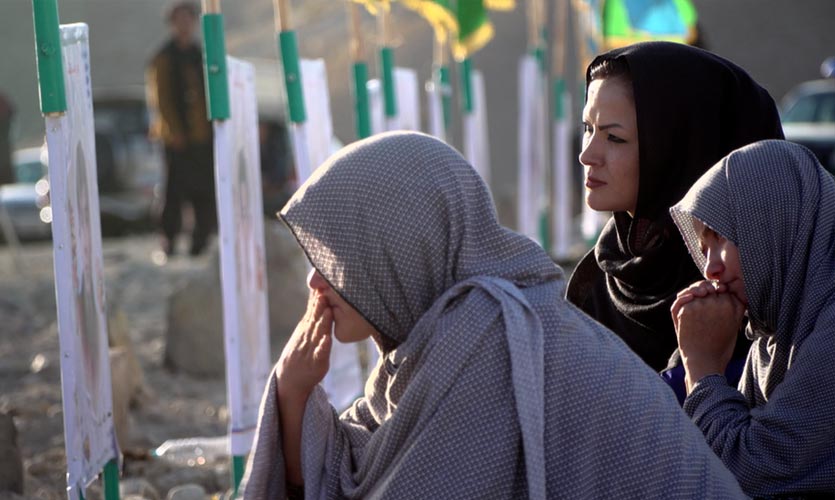The disturbing and chaotic visuals appearing from Kabul’s Hamid Karzai airport in Afghanistan, exemplify the fear and horror gripping over the war torn country after the hardliner Islamist militant group, the Taliban took over the country on August 15. Under their rule, minority communities such as the Hazaras, Christians and women feel even more vulnerable and exposed to brutalities and persecutions. Their bitter and disastrous experiences with the Taliban in the 90s seem inbound yet again.
The religious minorities and women in Afghanistan, bore the brunt of the Taliban’s brutality from 1996 to 2001, when the insurgents were in power and were not afraid of killing anyone. Now, after nearly 20 years, history seems to be repeating itself with the Taliban take over. The protection of these minorities has not been shouldered by any authority, and the international community’s incapability to protect them has clearly portrayed the failure of US foreign policy.
Since the signing of the Doha agreement between the former president of the US, Donald Trump and the Taliban, the world had expected a catastrophic end to US’ presence in Afghanistan. But the events that have unfolded since the current US President Joe Biden’s decision to leave Afghan soil by August 31, has clarified that America’s war against terrorism does not included for nation building, a fact which President Biden emphasised on during his speech while defending his stand on the withdrawal of US forces.
With reports of Taliban going door to door in search of people who worked with the formerly Western backed government, new claims have also risen of Taliban’s militants killing and torturing members of religious and ethnic minorities.
Amnesty reported that nine men belonging to the Hazara community were killed in Ghazni province, in the village of Mundarakht, between July 4-6, by the Taliban. The report said that it was reminiscent of the Taliban’s past record, and an indication of what they rule will bring in.
Shortly after taking control of Kabul, the Taliban announced and promised that they would respect women’s rights, but these assurances seem nothing more than an attempt to covertly garment their hardliner agendas. The Hindustan Times reports that despite the assurances made by Taliban spokesperson Zabihullah Mujahid, there have been various instances indicating Taliban’s genuine duplicity. Mujahid had said, “[the] Taliban are committed to providing women with their rights based on Islam. Women can work in the health sector and other sectors where they are needed. There will be no discrimination against women.” However, heart-wrenching reports such as trafficking of Afghan women to neighbouring countries in coffins, elimination of women journalists, and so on, continue to flood in the press. Zabihullah Mujahid, during a press conference, said that the situation in Afghanistan is very volatile, and directed Afghan women to work from home. This statement seems to be a precursor to the group’s agenda of achieving complete domination and coercion over the people and resources of Afghanistan.
UN High Commissioner for Human Rights Michelle Bachelet said that she has received credible reports of serious violations against women and civilians, including those of summary executions. Expressing her concerns over the violations, she added, “There are grave fears for women, for journalists and for the new generation of civil society leaders who have emerged in the past years… Afghanistan’s diverse ethnic and religious minorities are also at risk of violence and repression, given previous patterns of serious violations under Taliban rule and reports of killings and targeted attacks in recent months.”
According to a report by the United Nations Assistance Mission in Afghanistan (UNAMA) in July, more children and women were killed and wounded in the worn torn country in the first half of 2021, in comparison to any other year since 2009.
As analysts, commentators and other rights groups continue to come up with new reports of chaos, violence and danger, one thing is for sure that the situation in Afghanistan will not be much different than the era of 1996-2001, after foreign nations leave the country completely.
Read more: Taliban Takeover: Afghan Women’s Troubles Come Full Circle
As per the US State Department Religious Freedom Report 2020, religious and ethnic minorities continue to face harassment by the Taliban and its affiliate militant groups active in the country. Baháʼís and Christians live in constant fear for their lives, reluctant to express their religious identity to anyone. They have reportedly been forced to convert. The situation of the Hazara community is similar to that of Shia Muslims, who have been a target for not just the Taliban but also the Islamic State – Khorasan Province (ISKP).
The situation in Afghanistan is most unfortunate, where the international community has failed to prevent atrocities committed by the Taliban against civilians, women and minorities. Their urgency to leave Kabul signifies the disastrous fate of Afghans. Those who are lucky enough to leave the country are worried and anxious about the situation back home, and those left behind have no option but to strive to survive the hostile situation.
The notion that Taliban 2.0 is a “reformed” version of the previous regime, is nothing but a dubious attempt by the group to get recognition both internationally and domestically. The people of Afghanistan know that once foreign troops leave, their everyday lives will be marred with suffering.










